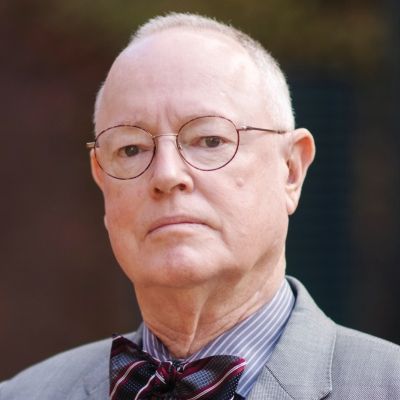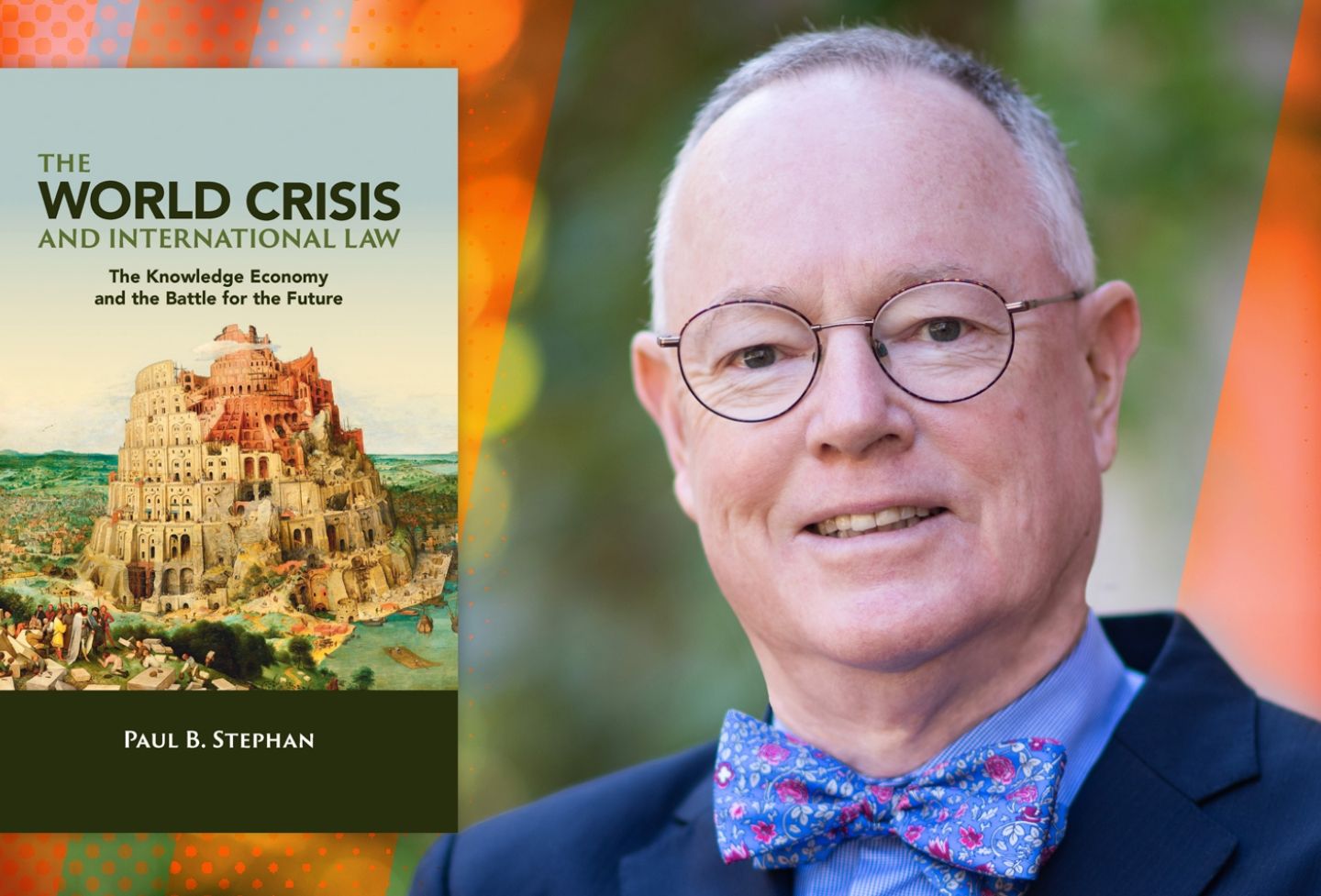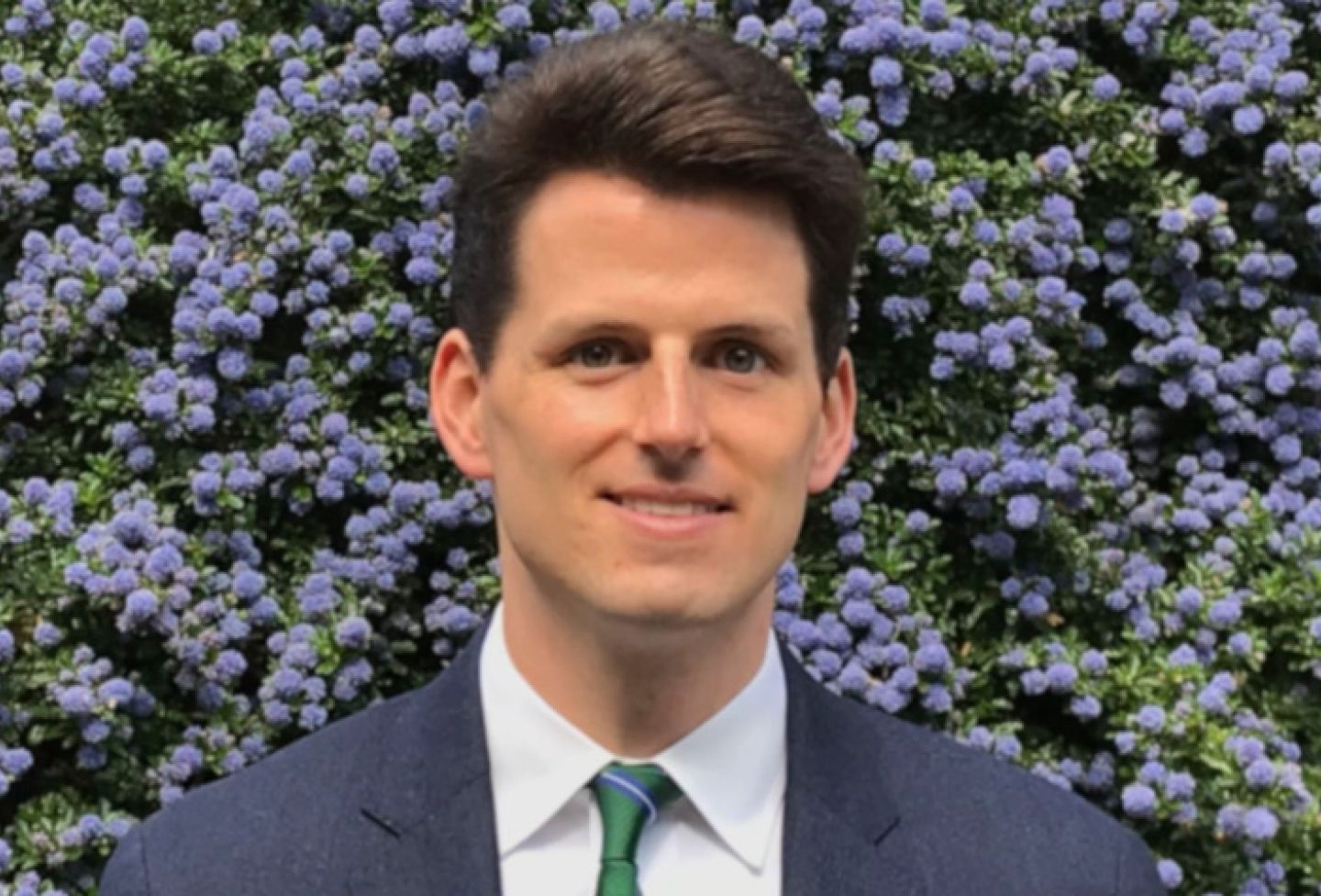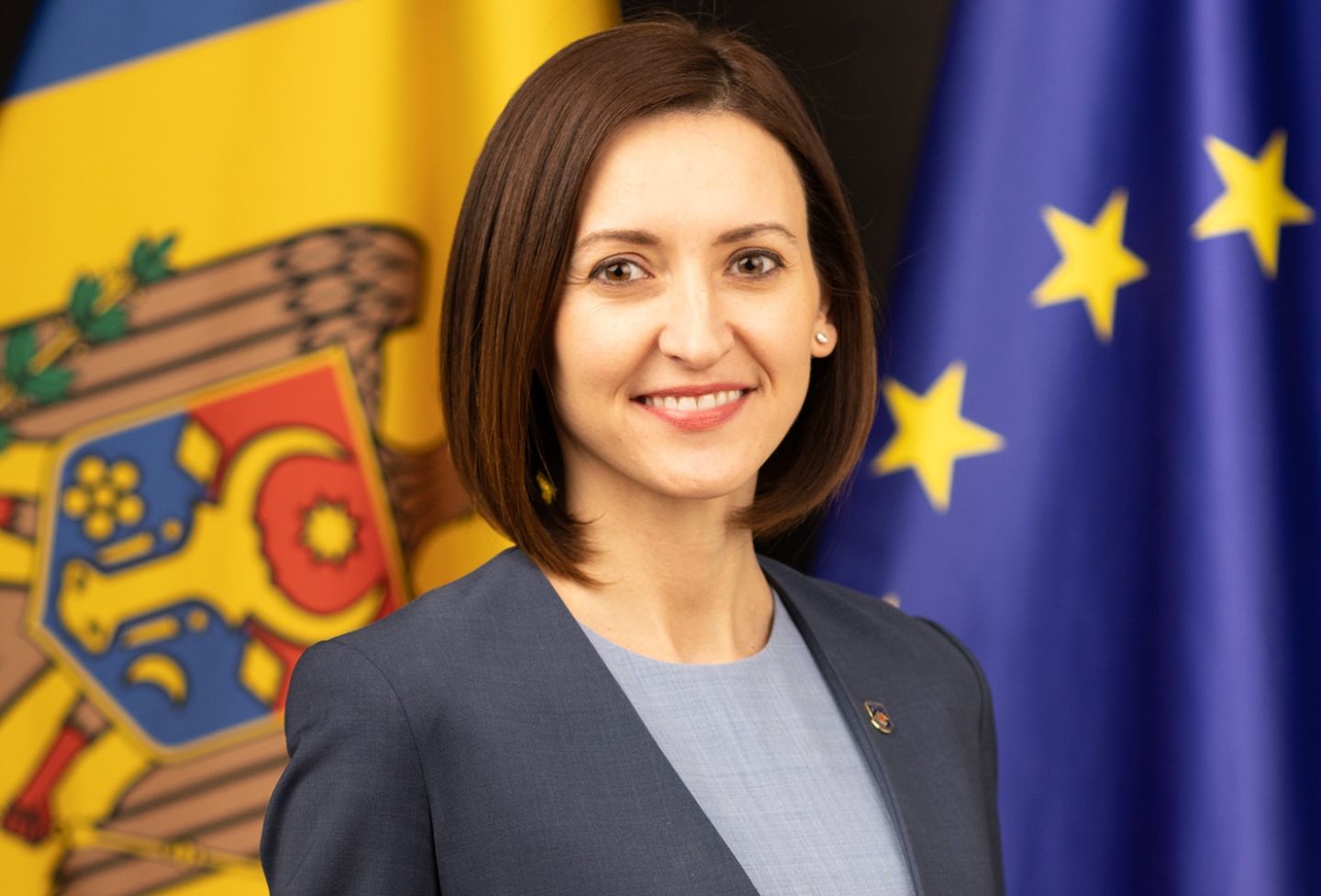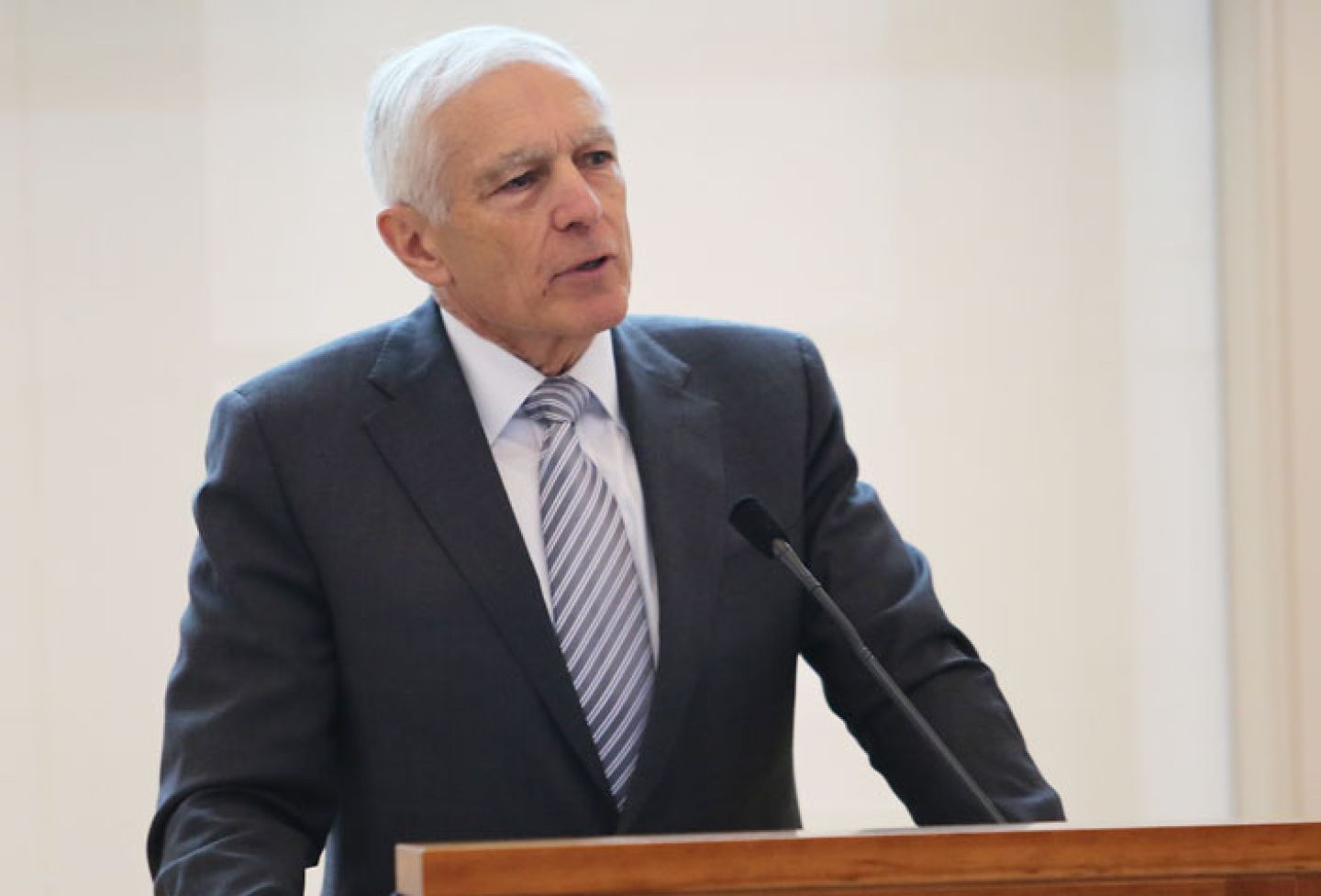About the Program
The University of Virginia School of Law has long been one of the country’s most distinguished institutions of teaching and research in international law.
The History of International Law at UVA
Faculty and graduates of the Law School played pivotal roles in the United States’ engagement with international law and institutions. John Bassett Moore, an 1880 graduate, served as assistant U.S. secretary of state and was the first American judge to serve on the Permanent Court of International Justice. Dean Hardy Cross Dillard, also a graduate, later served as a judge on the International Court of Justice, and Monroe Leigh, a leading international law scholar, served as legal adviser to the U.S. Department of State and president of the American Society of International Law. The Virginia Journal of International Law is the oldest continuously published, student-edited law review in the United States, and remains one of the finest and most cited.
In more recent years, Professor Emeritus John Norton Moore served as a U.S. ambassador to the negotiations that produced the U.N. Convention on the Law of the Sea, after which he established the world’s leading research center in this area. Professor Richard Lillich, who served on the faculty from 1969 until his death in 1996, was a founder of the field of international human rights law. David Martin, now an emeritus professor, is the leading academic expert on immigration law in the United States and served as general counsel of the Immigration and Naturalization Service and as deputy general counsel of the Department of Homeland Security. Four members of the faculty have served as counselor for international law to the legal adviser of the State Department, twice as many as any other law school. One of them, Professor Paul Stephan, led a team of experts in producing the American Law Institute’s Fourth Restatement of the Foreign Relations Law of the United States.
The Program Today
Today, Virginia Law continues this tradition with one of the strongest international law programs in the country. It offers a wide range of courses that cover all major areas, including international trade and finance, human rights and immigration, the law governing war and use of force, environmental law, international litigation and arbitration, and comparative constitutional law. Its faculty includes internationally renowned experts in these fields. In addition, foreign professors are regularly invited to teach seminars on topics such as European Union law and comparative law, and students may take select courses at the neighboring Judge Advocate General’s Legal Center and School. The Law School also offers short courses in Paris and Tel Aviv, as well as semester-long exchanges with several leading law faculties abroad and a dual-degree program with Sciences Po in Paris.
Experiencing International Law in Practice
Virginia Law offers multiple opportunities for students to experience international law in practice. Its curriculum includes the International Human Rights Law Clinic and the Human Rights Study Project, which yearly sends a student team to research and document human rights issues in a foreign country. Monroe Leigh Fellowships and Public Interest Law Association (PILA) grants allow students to pursue a public international law project during the summer. These have included internships with the International Criminal Tribunals for Yugoslavia and Rwanda, the U.N. World Food Program, the International Finance Corporation, the U.S. Department of Justice, the CDC’s Global AIDS Project, and nongovernmental organizations such as EarthRights International, the International Center for Transitional Justice and Human Rights Now. The Law School also offers a yearly fellowship for a student to spend a year as a full-time trainee at the International Court of Justice after graduation.
Extracurricular Opportunities
The Law School is also home to dynamic student organizations devoted to international law. As noted above, the Virginia Journal of International Law is the finest and most authoritative student-run international law journal in the United States, while the John Bassett Moore Society of International Law organizes lectures and social events. The two organizations co-sponsor an annual symposium on an international law topic that brings distinguished academics and practitioners to the Law School. Virginia Law’s teams also participate in several international law moots, and frequently advance to the international round of the Jessup International Law Moot Court competition.
National Security Law Center
The Law School hosts the National Security Law Center, which allows students to study the most pressing issues in national security law and to explore the wide range of career opportunities available in the field. The center takes advantage of the Law School’s proximity to the Judge Advocate General’s Legal Center and School and the wide range of national security practitioners in Washington, D.C., to enrich the Law School’s course offerings with expert speakers from government and policy groups.
Research
The Law School’s Arthur Morris Law Library hosts extensive collections and offers online research resources on international law and foreign and comparative law.
Lee C. Buchheit
Lenders are perfectly free to decide for themselves whether, when, how, to whom and on what terms they will extend credit to a sovereign borrower. But...
Oona A. Hathaway
The Supreme Court’s recent expansion of the major questions doctrine has rocked administrative law, throwing into doubt executive agencies’ statutory...
Countries hit by unexpected crises often look to their overseas diasporas for assistance. Some countries have tapped into this generosity of their...
In an era defined by partisan rifts and government gridlock, many celebrate the rare issues that prompt bipartisan consensus. But extreme consensus...
In this article, we examine the relations between risk, the choice of foreign or local contract terms (parameters), and maturity in the sovereign debt...
In this article, we examine the relations between risk, the choice of foreign or local contract terms (parameters), and maturity in the sovereign debt...
Faculty Director(s)
Paul B. Stephan
John C. Jeffries, Jr., Distinguished Professor of Law
David H. Ibbeken ’71 Research Professor of Law
Senior Fellow, Miller Center
Lee C. Buchheit
Lenders are perfectly free to decide for themselves whether, when, how, to whom and on what terms they will extend credit to a sovereign borrower. But...
Oona A. Hathaway
The Supreme Court’s recent expansion of the major questions doctrine has rocked administrative law, throwing into doubt executive agencies’ statutory...
Countries hit by unexpected crises often look to their overseas diasporas for assistance. Some countries have tapped into this generosity of their...
In an era defined by partisan rifts and government gridlock, many celebrate the rare issues that prompt bipartisan consensus. But extreme consensus...
In this article, we examine the relations between risk, the choice of foreign or local contract terms (parameters), and maturity in the sovereign debt...
In this article, we examine the relations between risk, the choice of foreign or local contract terms (parameters), and maturity in the sovereign debt...
Both theorists and courts commonly assume that high-dollar financial contracts between sophisticated parties are free of linguistic errors...
At the inception of a new and potentially transformative type of tax enforcement, this Article reviews the goals underlying the prohibition on state...
States are increasingly turning to artificial intelligence systems to enhance their national security decision-making. The real risks that states will...
More
National security review of corporate transactions has long been a relatively sleepy corner of regulatory policy. But as governments merge economic...
Assessing the legitimacy of any legal system is hard, but especially if the system in question is the volatile and contested field of international...
Lee C. Buchheit
All sovereign debt restructurings are inherently messy, expensive, exasperating, time-consuming and contentious. These are the familiar pathologies in...
This article develops a positive, decision-theoretical model of the logic that states use in drafting, negotiating, approving, and ratifying...
More
Economic and financial sanctions have become one of the most prominent tools of U.S. foreign policy. The relevant sanctions programs are complex and...
In this article, Mason explains how the OECD's proposed Pillar 2 global minimum tax rules induce cooperation by states, and how the proposal to enact...
Wenwen Ding
As China reformed its economy during the past 44 years, it experienced the fastest sustained expansion by a major economy in history, with an annual...
There may be no place in the contemporary world where the global collides more acutely with the local than the Kingdom of Bhutan. On the one hand, it...
Joseph Blocher
The United States acquired its first overseas territory—the island of Navassa, near Haiti—by conceptualizing it as a kind of property to be owned...
Charles Crabtree
A growing experimental literature suggests that international law appears to have a larger impact on public opinion than constitutional law. Because...
This article analyses those hurdles, which are different for privately owned property such as oligarch yachts and state property such as bank deposits...
Machine learning algorithms hold out the promise of making sense of vast quantities of information, detecting patterns, and identifying anomalies...
Kim Oosterlinck
Ugo Panizza
Mark C. Weidemaier
... In 1825, France conditioned its grant of recognition to the new nation of Haiti on the payment of 150 million francs plus trade benefits. The payments...
More
Russia’s invasion of Ukraine has put to the test theories about how cyberattacks fit into conventional war. Contrary to many expectations, cyber...
This introductory chapter uses the framework of pedagogical choice to articulate and compare competing visions of how the field should be...
More
When a state suffers an internationally wrongful act at the hands of another state, international law allows the injured state to respond in a variety...
More
Hsiang-Yang Hsieh
Scholars frequently distinguish between “hard” and “soft” forms of judicial review: “hard” review gives courts the final say on constitutional...
Paolo Colla
An implication of the incompleteness of contracts is that there are going to be gaps and ambiguities that either side can exploit. We ask whether the...
Michael Bradley
Irving de Lira Salvatierra
W. Mark C. Weidemaier
...In 2018, Russia began inserting an unusual clause into euro and dollar sovereign bonds, seemingly designed to circumvent future Western sanctions. The...
In this article, Mason explains why the Commission lost the Fiat state-aid appeal before the Court of Justice of the European Union. She also argues...
More
Does the U.S. Constitution guarantee a right to a vaccine passport? In the United States and elsewhere, vaccine passports have existed for over a...
This chapter describes the rise of transborder anti-bribery law in this century against the background of its twentieth-century origins. It focuses on...
More
The use of economic statecraft is at a high-water mark. The United States uses sanctions, tariffs, and import and export controls more than ever...
Adam Chilton
Although constitutions establish countries’ fundamental laws, identifying which legal materials are constitutional is not a straightforward task...
The constitutional rules that govern how states engage with international law have profound implications for foreign affairs, yet we lack...
This Essay analyzes three methods of avoiding the doctrinal disarray in American choice of law: imposing constitutional restrictions on personal...
More
Bruno Zeller
International commercial law conventions (or “transnational law”) increasingly have become the legal device of choice regulating international...
Kim Oosterlinck
Ugo Panizza
Mark C. Weidemaier
...This article introduces the Haitian Independence Debt of 1825 to the odious debt and sovereign debt literatures. We argue that the legal doctrine of...
Recent Supreme Court decisions have severely curtailed the reach of the Alien Tort Statute (ATS), making it nearly impossible to hold multinational...
More
Pascal Saint-Amans
In this essay, we review criticisms of both the concept of international tax arbitrage and regulatory responses meant to reduce such arbitrage. We...
This article uses history to explore how prominent international lawyers explain seemingly transgressive state behavior. It begins with the Russian...
This article provides historical background that helps explain the agreed proposals among the OECD Inclusive Framework countries on Pillars 1 and 2...
More
Ugo Panizza
Unnoticed in the literature on sovereign bonds, an innovation has been taking place over the past decade and a half. Starting with a single issuance...
We analyze the price effect of the introduction of Collective Action Clauses (CACs) in newly issued sovereign bonds of Eurozone countries as of...
Corporations are increasingly important actors in international law. But, vital questions underlying this development have long gone unanswered: how...
James Morrow
States negotiate over the specific terms of multilateral treaties because those terms determine states’ willingness to ratify the treaty. In some...
More
In days of yore when men fought in sailing ships, a naval captain could only signal his intention to surrender his vessel by ‘striking the colours’...
The economic harm being caused by the novel coronavirus may soon result in multiple sovereign debtors moving into default territory. But the...
Contract law and theory have traditionally paid little attention to the processes by which contracts are made. Instead, contracts among sophisticated...
When a state seeks to defend itself against a cyberattack, must it first identify the perpetrator responsible? The US policy of “defend forward” and...
Lee C. Buchheit
All sovereign debt restructurings risk undershooting (providing less debt relief than is needed to restore the country to long-term sustainability)...
This article provides a detailed summary of the General Court of the European Union’s judgment in Amazon and analyzes what it means for the future of...
More
Mark Weidemaier
In 2016, its economy in shambles and looking to defer payment on its debts, the Venezuelan government of Nicolás Maduro proposed a multi-billion...
When a state suffers an internationally wrongful act at the hands of another state, international law allows the injured state to respond in a...
Countries with large debts stocks are vulnerable to the vagaries of the markets. Confidence crises can arise out of nowhere, constricting access to...
Mark C. Weidemaier
As the global economic downturn from the coronavirus worsens, many sovereign debtors will have to choose between paying creditors and fighting the...
Even before COVID19 struck, we were going through a remarkable moment of political, economic, and social instability. We see disruption of many...
This symposium explores ways in which developments in artificial intelligence (AI) will affect the substance of international law, and, conversely...
Data-driven algorithmic tools allow their users to process large amounts of data quickly, extract patterns from the data that humans cannot otherwise...
In recent years, legislative bodies such as the U.S. Congress and the U.K. Parliament have struggled to maintain a role for themselves in government...
Charles Crabtree
How do international laws affect citizens' willingness to accept refugees? In full and partial democracies, citizens' attitudes can influence national...
Lee C. Buchheit
Argentina is once again seeking to restructure its external debt. To facilitate this process, the country is proposing to use the state-of-the-art...
In 1898, in the wake of the Spanish-American war, Spain ceded the colony of Cuba to the United States. In keeping with the law of state succession...
Joseph Blocher
In November, 1908, the international community tried to buy its way out of the century’s first recognized humanitarian crisis: King Leopold II’s...
Can Airbnb enforce international law? Should it? This Article argues that the answer to these questions may sometimes be yes and that many other...
A much-debated question in contract law scholarship is what the optimal measure of damages for breach should be. The casebook answer, drawing from...
Since the turn of the millennium, a remarkably large number of incumbent presidents have managed to stay past the end of their constitutionally...
Yesterday’s EU General Court decisions in Starbucks and Fiat represent major victories for the Commission and its theory of state aid, notwithstanding...
Big data technology and machine learning techniques play a growing role across all areas of modern society. Machine learning provides the ability to...
In a series of recent cases, the Supreme Court has vigorously applied the presumption against extraterritoriality to curtail the territorial reach of...
This chapter examines from a comparative perspective the national legal regimes that govern treaty-making and treaty withdrawal, functions that in...
Tom Ginsburg
From Catalonia to Kurdistan, Crimea to California, and Scotland to St. Kitts, secession has become a hotly debated political issue. While secessionist...
This Article argues that current methods for identifying illegal tax subsidies trigger the well-known conceptual difficulties of tax-expenditure...
The big question that this volume addresses is whether international law can bridge gaps between the world’s principal legal systems. There are many...
U.S. technology companies are increasingly standing as competing power centers that challenge the primacy of governments. This power brings with it...
Attribution of state-sponsored cyberattacks can be difficult, but the significant uptick in public attributions in recent years has proven that...
When a foreign country's law is relevant to a case in U.S. federal court and the foreign country files an official statement about the meaning of its...
For most of the past century, those who followed foreign relations law believed that federal law, including that made by the federal courts in the...
When Ebola came to West Africa in 2014, Liberia could not cope. The State’s already fragile public health infrastructure was largely ineffective in...
In this sixth and final installment in a series of reports on state aid, Mason evaluates the European Commission’s decisions in the recent state aid...
More
Hooman Movassagh
One critique of some common-law comparative legal academies is their intensively “court-centric” focus, which, some believe, “marginalize[s]” the role...
How must states’ intelligence communities (ICs) approach their international law obligations? From the perspective of international law itself, the...
This chapter represents my contribution to a book provisionally entitled Comparative International Law, scheduled for publication by Oxford University...
Comparative international law utilizes insights and methods from comparative law in order to identify, analyze, and explain similarities and...
This contribution discusses in detail the Security Council-authorized intervention by NATO in Libya in 2011, in response to the Libyan government’s...
Under the original understanding of the Constitution, customary international law features in the U.S. legal system as general law. It is not law of...
This article describes the intricacies of U.S. constitutional law on the rights of aliens. It identifies three general tendencies that bear on...
In the contemporary world, the domains of laws overlap a lot. With human activity (business, family, political, creative) unfolding at a greater...
This article, presented at a symposium occasioned by the publication of A.J. Bellia’ and Bradford Clark’s The Law of Nations and the United States...
Eyal Benvenisti
Constitutions are traditionally seen as inherently domestic documents, written by the people, for the people, and reflecting the nation’s highest...
This paper is a contribution to an upcoming issue of Law and Contemporary Problems devoted to work originating in the Conference, “What’s Next for...
Leopoldo Parada
We argue that the high revenue triggers in proposed digital taxes — including the recent Franco-German proposal for a digital advertising tax — may...
This article describes Wayfair and provides some cautions about what it means for the U.S. states and the rest of the world, especially Europe. It...
In the U.S. constitutional system, the President generally conducts foreign relations. But not always. In recent years, the courts and Congress have...
Silicon Valley has long been viewed as a full-throated champion of First Amendment values. The dominant online platforms, however, have recently...
Joseph Blocher
On June 11, 2017, Puerto Rico held a referendum on its legal status. Although turnout was low, 97% of ballots favored statehood over independence or...
Lee C. Buchheit
The Eurozone sovereign debt crisis began in the spring of 2010. Seven years on seems like an appropriate point at which to critique how the crisis...
Lee C. Buchheit
Emerging market sovereigns issue bonds in the international capital markets governed by a foreign legal regime such as the law of England or New York...
Mark C. Weidemaier
The 20th century witnessed a transformative, “tectonic” shift in international law, from “absolute” to “restrictive” theories of sovereign immunity...
The Kingdom of Bhutan — dubbed by some the “hermit kingdom” — has a famously ambivalent attitude toward globalization. Bhutan’s first law school...
Legislatures are critical to international law governance for two related reasons. First, most are involved in several stages of treaty creation and...
In this fifth part in a series of reports on state aid, Mason explains that tax reductions violate Article 107 TFEU when they are selective rather...
This is Part three in a multi-part Special Report on state aid. It provides detailed analysis and critical commentary on the EU Commission's recent...
More
In this report, the second in a series of reports on EU state aid, Mason evaluates the claims Treasury’ made in its White Paper that recovery in the...
More
In this fourth part in a series of reports on state aid, Mason focuses on the element of “advantage” in EU state aid law, and she criticizes the...
While political science scholarship recognizes that the effectiveness of international law often rests on its domestic implementation, relatively...
In numerous cases, courts have declined to apply the United Nations Convention on Contracts for the International Sale of Goods in litigation where...
Data’s intangibility poses significant difficulties for determining where data is located. The problem is not that data is located nowhere, but that...
Calls for public-private partnerships to address U.S. cybersecurity failures have become ubiquitous. But the academic literature and public debate...
Joseph Blocher
Can popular sovereignty and sovereign territory co-exist? Can we imagine a world in which sovereignty territory could, like property, be traded among...
Nikki C. Gutierrez
One of the most heated debates of the last two decades in US legal academia centers on customary international law's domestic status after Erie...
Joseph Blocher
Many of the central challenges in international law arise from bad relationships between regions and the nations in which they are located. Some...
Joseph Blocher
The past few decades have witnessed the growth of an exciting debate in the legal academy about the tensions between economic pressures to commodify...
Lee C. Buchheit
The decade and a half of litigation that followed Argentina’s sovereign bond default in 2001 ended with a great disturbance in the Force. A new...
In recent years, global policy makers have declared that heads of state must be held accountable through criminal prosecution for internationally...
The global appeal of liberal constitutional democracy—defined as a competitive multiparty system combined with governance within constitutional limits...
Adam S. Chilton
The human rights movement has spent considerable energy developing and promoting the adoption of both international and domestic legal prohibitions...
Cosette D. Creamer
In their essay, "The Influence of History on States’ Compliance with Human Rights Obligations," Adam Chilton and Eric Posner conclude that modern...
The Bush Administration took a maximalist approach to the jus ad bellum and jus in bello, staking out broad claims about what international law...
Secret international agreements have a bad reputation. Ever since states misused secret agreements during World War I, commentators have condemned...
Judicial and scholarly discussions about checks and balances almost always focus on actions and reactions by domestic actors. At least in the...
Intelligence activity is — or, more accurately, was — the last bastion of foreign relations unconstrained by international law. States could steal...
This paper treats the design of judicial mechanisms (international courts, domestic courts, arbitral tribunals and the like) as variables that are...
This paper uses the history and function of the jus cogens concept in international law to demonstrate that its meaning and implication have varied in...
This Article presents the first systematic study of foreign sovereign amicus briefs in the Supreme Court. Based on an analysis of the briefing, oral...
Joseph Blocher
The unprecedented scale of the modern refugee crisis demands novel legal solutions, and new ways of summing the political will to implement them. As a...
As of this writing in June 2016, the markets are predicting Venezuela to be on the brink of default. On June 1, 2016, the 6 month CDS contract...
Lee C. Buchheit
If Greece’s debt is unsustainable, and most observers (including the IMF) seem to think it is, the country’s only source of funding will continue to...
Stephen J. Choi
In March 2012, Greece conducted one of the biggest and most brutal sovereign debt restructurings ever, asking holders of Greek government bonds to...
It is a core function of constitutions to justify the existence and organization of the state. The ideological narratives embedded in constitutions...
One of the most contested questions in the jus ad bellum is whether and when it is lawful for a state to use force unilaterally before it suffers an...
Stephen J. Choi
In March 2012, Greece conducted one of the biggest and most brutal sovereign debt restructurings ever, asking holders of Greek government bonds to...
Despite Congress’s important role in upholding U.S. international law obligations, the relevant existing literature largely ignores the branch. This...
Edward Snowden’s leaks laid bare the scope and breadth of the electronic surveillance that the U.S. National Security Agency and its foreign...
Erik Voeten
Customary international law (CIL) is a widely accepted source of international law, but it is poorly understood and has eluded systematic empirical...
International legal scholars have long recognized the importance of the rules and processes by which states adhere to international legal obligations...
Many view constitutional incorporation of international human rights treaties as the most effective way to enforce treaty rights domestically. Three...
Most of the conventions produced by UNCITRAL since 1980 share a certain boilerplate. Included in this treaty boilerplate are provisions that require...
Concerns about cyberwar, cyberespionage, and cybercrime have burst into focus in recent years. The United States and China have traded accusations...
As part of a symposium on cyberwar, this invited contribution explores the challenges that new technologies pose for international law. Borrowing from...
By global standards, the U.S. Supreme Court is unusual in a number of respects, but one of its most distinctive characteristics is its reluctance to...
• The IMF staff’s 2013 proposal to reprofile (i.e., stretch out for a short period without haircutting principal or interest) the maturing debt of a...
Joseph Blocher
The drama in Ukraine has occupied global headlines for many months now and — while there are occasional signs that things are calming down — the...
Over the course of the twentieth century, the effect of state boundaries as hard-and-fast limits on judicial and legislative jurisdiction steadily...
Daniel M. Mahfood
When a foreign individual or company misappropriates the trade secrets of an American company, and the acts of misappropriation occur entirely outside...
Several states have been engaged for years in armed conflicts against non-state actors outside their territory. These conflicts implicate a wide...
Joshua D. Blank
The Foreign Account Tax Compliance Act (FATCA) represents a powerful response by the United States to flagrant offshore tax evasion. Although the new...
This paper explores the dynamics of international judicial interactions in civil cases. It proposes a positive model of court-on-court encounters...
Erik Voeten
This article articulates an explanatory theory of customary international law under which precedential concerns are central to explaining CIL...
Melissa Boudreau
The role of the Official Sector institutions as lenders in crisis situations has evolved over time, and, particularly in the context of the current...
Benjamin Remy Chabot
One of the most debated issues in international finance is the meaning of the pari passu clause in sovereign bonds. The clause is ubiquitous; it is...
Michael Bradley
One of the primary policy initiatives instituted in response to the Eurozone sovereign debt crisis is a requirement that all Eurozone sovereign...
What obligations does a state have after it forcibly overthrows the regime of another state or territory? The Hague Regulations and the Fourth Geneva...
Authoritarian regimes can make surprising constitutional choices. Many adopt sham constitutions packed with rights guarantees that they do not uphold...
More
Near the end of the 2009 Term the Supreme Court decided Morrison v. Australia National Bank, Ltd., the strongest anti-extraterritoriality opinion it...
The Eurozone official sector has declared that the belated restructuring of Greek bonds held by private sector creditors in 2012 was a “unique and...
Lee C. Buchheit
Last Friday, the European leaders trespassed on consecrated ground by putting insured depositors in Cypriot banks in harm’s way. They had other...
A meeting of international finance and insolvency experts was held on November 2, 2013 at the Annenberg House in Santa Monica, California. The meeting...
Many celebrate international law as a way to compel states to protect human rights. Often it serves this role. But sometimes it has the reverse...
J. Scott Holladay
We develop a model of international agreements to price a transboundry externality and provide a new heuristic to aid in interpreting negotiation...
This paper, presented to the 25th Sokol Colloquium on Private International Law in April 2012, and slated for publication in a forthcoming book...
This article explores the background to, and significance of, the Russian renationalization of the Yukos energy conglomerate through a tax assessment...
Unlike many areas of international cooperation, international financial regulation (IFR) relies on informal networks of regulators and “soft law”...
It is often thought that the judicial recognition of customary international law depends on jurisprudential assumptions about the nature of legal...
The President, Congress, and the courts have long disagreed about who has the power to terminate treaties. Presidents have claimed the power to...
Lee C. Buchheit
The Eurozone debt crisis is entering its third year. The original objective of the official sector’s response to the crisis -- containment -- has...
Mark C. Weidemaier
For two decades, collective action clauses (CACs) have been part of the official-sector response to sovereign debt crisis, justified by claims that...
The Greek debt restructuring of 2012 stands out in the history of sovereign defaults. It achieved very large debt relief – over 50 per cent of 2012...
Anna Gelpern
The Greek debt crisis prompted EU officials to embark on a radical reconstruction of the European sovereign debt markets. Prominently featured in...
Michael S. Knoll
Prohibitions of tax discrimination have long appeared in constitutions, tax treaties, trade treaties and other sources, but despite their ubiquity...
Jeromin Zettelmeyer
For some months now, discussions over how Greece will restructure its debt have been constrained by the requirement that the deal be “voluntary” –...
This paper, written as a chapter for a forthcoming volume on international comparisons of prosecutors’ roles in various jurisdictions, provides a...
As a candidate for President, Barack Obama made “change” a central theme of his campaign. In particular, he railed against the Bush Administration’s...
More
This article considers whether the prospect of increased competition in the regulation of international bribery is desirable or not. It explores the...
This paper examines the highly contentious and protracted implementation of the Basel II accord on bank capital adequacy in the United States. As a...
It has been suggested, with growing frequency, that the United States may be losing its influence over constitutionalism in other countries because it...
Non-state actors, including terrorist groups, regularly launch attacks against states, often from external bases. When a victim state seeks to respond...
A fairly substantial amount of literature has been generated over the years regarding the forms of masculinity that emerge in times of armed conflict...
Anna Gelpern
This paper examines the contract interpretation strategies adopted by the International Swaps and Derivatives Association (ISDA) for its credit...
Jeromin Zettelmeyer
Within the next couple of months, the Greek government, is supposed to persuade private creditors holding about EUR 200bn in its bonds to...
Lee C. Buchheit
Perhaps Greece - a country with a debt to GDP already approaching 150 percent and set to move even higher - avoids a debt restructuring. Perhaps not. ...
This paper, prepared for a conference hosted by Vanderbilt Law School on foreign sovereign immunity at home and abroad, begins with the dispute now...
The old understanding of international law as something created solely by and for sovereigns is defunct. Today the production and enforcement of...
The case for international cooperation in competition policy is weaker than commonly thought. First, the lion's share of international transactions...
This paper, a chapter in a forthcoming book on International Law and the Supreme Court, examines the treaty decisions of the Court during the postwar...
In recent years, scholars have devoted considerable attention to transnational networks of financial regulators and their efforts to develop uniform...
It has become almost universal practice for countries to adopt formal constitutions. Little is known empirically, however, about the evolution of this...
On the Frontlines gives a comprehensive overview of the post-conflict terrain as it is experienced by women across multiple jurisdictions and in the...
Customary International Law (CIL) is plagued with uncertainties about its sources, its content, its manipulability, and its normative attractiveness...
Lee C. Buchheit
In the wake of the Eurozone sovereign debt crisis, the European financial authorities announced last November that all Eurozone sovereign bonds issued...
Default on sovereign debt is a form of political risk. Issuers and creditors have responded to this risk both by strengthening the terms in...
Conventional wisdom holds that boilerplate contract terms are ignored by parties, and thus are not priced into contracts. We test this view by...
The organizational structure of a judicial system has systematic implications for the ideological slant of judicial policymaking. These implications...
There are two senses in which judicial review in Japan has failed. First, the Supreme Court of Japan strikes down laws so rarely that judicial review...
Wen-Chen Chang
The notion that "global judicial dialogue" is contributing to the globalization of constitutional law has attracted considerable scholarly attention...
"Tax discrimination" is an increasingly important legal concept for international trade and cross-border investment. Commentators have observed that...
More
Despite the widespread media focus on business outsourcing transactions, we only have a limited understanding of how firms actually select a...
Significant intellectual and financial resources have been committed to decentralization projects in the developing world based on the idea that...
This paper responds to a provocative essay by Curtis Bradley and Mitu Gulati on exiting from customary international law. Bradley and Gulati argue...
This paper explores the situation of women returning to their homes and communities after their countries have experienced major conflicts. In that...
Lee C. Buchheit
Sovereign debt problems were once thought to be a third world affliction. They still are. But as events of the last two years have shown...
"Odious debts" have been the subject of debate in academic, activist, and policy circles in recent years. The term refers to the debts of a nation...
The conventional wisdom among international law scholars is that, once a rule of customary international law (CIL) becomes established, nations...
In October 2000 a hedge fund holding an unpaid debt claim won an enormous victory against the debtor, the Republic of Peru, through an opportunistic...
Treaties are negotiated, usually written down, and often subject to cumbersome domestic ratification processes. Nonetheless, nations often have the...
Governments often deliver social welfare benefits through “tax expenditures,” provisions of the tax code (such as home mortgage deductions) designed...
This article argues that international greenhouse gas (GHG) cap-and-trade schemes suffer from inherent problems of enforceability and verifiability...
Treason is an ancient crime, but it fell into disuse in most Western democratic states after World War II. Now it is making a comeback with...
Lee C. Buchheit
Conventional wisdom is that sovereigns will rarely, if ever, default on their external debts in circumstances where it is clear that they have the...
Anna Gelpern
This essay highlights a phenomenon that has no place in the conventional theory of sophisticated business contracts: the term that makes no sense as...
The "rogue trader" - a famed figure of the 1990's - recently has returned to prominence due largely to two phenomena. First, recent U.S. mortgage...
The Supreme Court of Japan is widely and justifiably considered the most conservative constitutional court in the world. Drawing on interviews...
This comment considers arguments for and against stricter regulation of sovereign wealth funds (SWFs), either by tightening securities laws or...
More
Double taxation of corporate profits distorts the choice of business form, the debt and equity capitalization of companies, and the character and...
The European Court of Justice (ECJ) has come under increasing criticism for overstepping its institutional authority in tax cases by invalidating...
In Swift v. Tyson, Justice Story argued that federalization of the law of negotiable instruments was necessary to thwart local courts from adopting...
Since 1996, the Supreme Court of the United States has signaled that the jurisprudence of the writ of habeas corpus, and its possible suspension...
Anthony Gambino
This paper develops a typology of different country governance contexts, in which we propose four broad categories of countries in Sub-Saharan Africa...
Anna Gelpern
For over a decade, contracts literature has focused on standardization. Scholars asked how terms become standard, and why they change so rarely...
Sarah Ludington
The few years since the U.S. incursion into Iraq in 2003 have witnessed an explosion in the literature on odious debts - that is, debts incurred (a)...
Lee C. Buchheit
Few events in the life of a society are as heady as the ouster of a long-standing dictatorial or corrupt regime. In the euphoria that typically...
Globalization - the drastic reduction of barriers to trans-border movement and exchange - is a phenomenon of obvious practical significance that has...
Under the standard the European Court of Justice (ECJ) uses to evaluate tax discrimination cases, a Member State discriminates when it taxes cross...
Georg W. Kofler
This article considers whether the fundamental freedoms of the EC Treaty encompass an absolute requirement on the Member States to mitigate double...
How important are active independent shareholders in a framework for sound corporate governance? Hedge funds, institutional investors, the "Warren...
Different in more ways than it is possible to easily enumerate, the formation of the United States and the European Union (EU) had a striking...
More
In this short essay, I fight a two front war, besieged by three superb scholars. Professors Robert Delahunty and John Yoo, and Professor Michael...
After four years of consideration, the Israeli Supreme Court recently issued the world's first judicial decision on targeted killings in Public...
In 1981, Israel launched a preemptive attack on the Iraqi Osiraq nuclear reactor. Now a similar strike is being considered against Iranian nuclear...
Although extralegal enforcement is widely acknowledged, the conventional understanding of written contract provisions, such as the complex and...
Omri Ben-Shahar
This article argues that the cost of odious debt ought to be borne by the party who is best positioned to prevent the accumulation of such debt...
This article discusses tax treaty limitation on benefits (LOB) clauses, with special emphasis on derivative benefits and "equivalent beneficiaries."
More
This paper, written for a symposium on The Mind of a Child, examines two different aspects of the accountability of children: those children who are...
A critical issue for post conflict reconstruction is moving beyond criminal prosecutions that ensure accountability of perpetrators toward a system...
Anna Gelpern
This article revisits a recent shift in standard form sovereign bond contracts to promote collective action among creditors. Major press outlets...
This Article considers the effects of EC law on U.S. tax treaty policy. The discussion is framed by the controversy over the legality of tax treaty...
More
The Court's docket last Term included five cases directly presenting questions of international law. Republic of Austria v. Altmann raised issues of...
Beyond Retribution and Impunity: Responding to War Crimes of Sexual Violence articulates principles for an approach to gender-based violence during...
As Justice Breyer has observed, "[j]udges in different countries increasingly apply somewhat similar legal phrases to somewhat similar circumstances...
Legal academics and international-relations scholars have recently undertaken a great deal of interdisciplinary work on the interaction of...
International law provides an ideal context for studying the effects of freedom from coercion on cooperative behavior. Framers of international...
Stephen J. Choi
Network externalities may lead contracting parties to stay with a standardized term despite preferences for another term. Using a dataset of...
William W. Bratton
In April 2002 the International Monetary Fund introduced a sovereign bankruptcy proposal only to be rebuffed by the United States Treasury. Where the...
This article contributes to the "arrival of history" in constitutional scholarship and the revival of foreign affairs jurisprudence in the legal...
A President who chooses to seek legislative approval of a treaty risks delay, textual modification, and even outright defeat. Neither the Constitution...
I address two parallel and paradoxical trends involving U.S. litigation and international law. I describe how U.S. courts have sought to widen their...
I discuss the roles of adjudication bodies in promoting the unification of law. Then I clarify the redistributive dimensions of unification projects...
This paper examines the interplay between intellectual property rules and forces driving globalization in the world economy. It argues against the...
This paper will be published in the Georgetown Law Journal as one of two responses to an essay by Andrew Guzman on the law and economics of choice of...
In this paper, forthcoming in the Virginia Law Review, I explore the role of litigation as a policy-making and rule-generating process in the context...
Lee C. Buchheit
One hundred years ago in the United States, confronted by the urgent need to find a debt workout procedure for large corporate and railroad bond...
Written before the Hague negotiations on climate change held in November of 2000 (the so-called "COP-6" meeting), this essay argues that the COP-6...
Kenneth N. Klee
Sovereign Piracy lays bare the recent efforts of vulture investor Elliott Associates to holdup the Government of Peru. When Peru tried to restructure...
I compare two competing accounts of the U.S. role in the global economy. In one version, the United States has built an international system that...
Lee C. Buchheit
The external debt of emerging market sovereign borrowers is now mainly in the form of bonds held by thousands of institutional and individual...
This paper uses the new literature on norms and rationality to explore why societies develop widespread corruption as a means of organizing economic...
This paper challenges the conventional wisdom that unification and harmonization of international commercial law is desirable and should be pursued...
Core International Law Faculty
Virginia Law’s international law faculty includes some of the nation’s leading experts in their respective fields. They regularly teach international law courses, organize and participate in international law events and conferences, and supervise independent research in their areas of expertise:
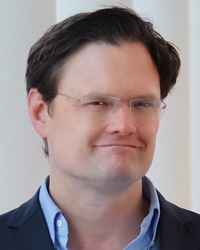 Kevin Cope
Kevin Cope
Kevin Cope’s research applies social science methods to the study of international institutions, migration, and political attitudes toward international law. One of Cope’s major research initiatives involves multilateral treaty-making, in which he applies a theoretical model to negotiating data collected from the archived records of the last few decades’ most significant conventions, with the goal of improving future treaty-making processes. Before coming to the Law School, Cope clerked for three federal judges and practiced government enforcement litigation law in Washington, D.C., with Skadden, Arps, where he handled matters involving treaties, the Foreign Corrupt Practices Act, immigration law and the World Bank.
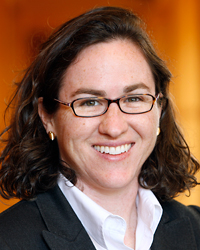 Ashley Deeks
Ashley Deeks
Ashley Deeks teaches and writes on international law and national security issues. Before coming to UVA in 2012, she served as the assistant legal adviser for political-military affairs in the U.S. Department of State’s Office of the Legal Adviser, as well as the Embassy legal adviser at the U.S. embassy in Baghdad in 2005, during Iraq’s constitutional negotiations. She was a 2007-08 Council on Foreign Relations international affairs fellow and a visiting fellow in residence at the Center for Strategic and International Studies. Since joining the Law School, she has been frequently quoted in the national media on topics such as legal justifications for war, diplomatic immunity, the Edward Snowden affair, and the use of cyber and drone warfare.
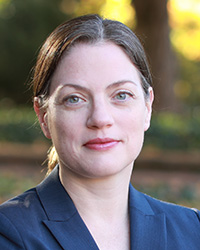 Kristen Eichensehr
Kristen Eichensehr
Kristen Eichensehr writes and teaches about cybersecurity, foreign relations, international law and national security law. She has written on, among other issues, the attribution of state-sponsored cyberattacks, the important roles that private parties play in cybersecurity, the constitutional allocation of powers between the president and Congress in foreign relations, and the role of foreign sovereign amici in the Supreme Court. She received the 2018 Mike Lewis Prize for National Security Law Scholarship for her article, “Courts, Congress, and the Conduct of Foreign Relations,” published in the University of Chicago Law Review. In 2021 she became director of UVA Law’s National Security Law Center.
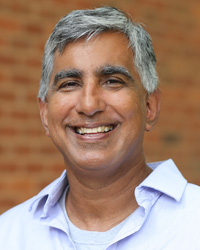 Mitu Gulati
Mitu Gulati
Mitu Gulati’s work focuses on sovereign debt restructuring and contracts, and explores how to help countries in financial distress. Gulati co-hosts the podcast “Clauses and Controversies,” is a contributor to the blog Creditslips.org and serves as regional editor for the journal Capital Markets Law Journal.
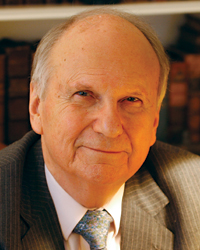 A. E. Dick Howard
A. E. Dick Howard
A. E. Dick Howard teaches courses in comparative constitutionalism. He was the chief architect of the Constitution of Virginia. He has compared notes with drafters of constitutions in various foreign countries, including Poland, Hungary, Czechoslovakia, Romania, Bulgaria, Albania, Brazil, the Philippines, Hong Kong, South Africa and Malawi. Howard has written extensively on Anglo-American constitutional history, especially the legacy of Magna Carta, and on constitutional developments in post-communist Central and Eastern Europe.
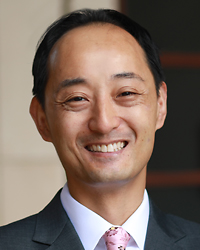 David S. Law
David S. Law
David Law is an internationally recognized expert in the comparative study of public law and courts, and a pioneer in the application of empirical social science methods to the study of legal texts. His scholarship combines qualitative fieldwork on foreign judicial and constitutional systems, quantitative analysis of constitutions and treaties, and regional expertise on Asia. Before joining the Virginia faculty, Law held the Sir Y.K. Pao Chair in Public Law at the University of Hong Kong. Law earned his B.A. in public policy and his M.A. and Ph.D. in political science from Stanford University, his J.D. from Harvard Law School, and his B.C.L. in European and Comparative Law from the University of Oxford. Born and raised in western Canada, he is a native Mandarin speaker.
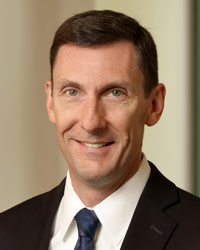 Tom Nachbar
Tom Nachbar
Tom Nachbar works extensively in the national security arena, focusing on law of armed conflict and the role of legal institutions in counterinsurgency and stability operations. He is a judge advocate in the U.S. Army Reserve, where he has, among other assignments, edited an Army handbook on the development of legal systems, trained Palestinian security forces in the West Bank and deployed to Iraq. He is a senior fellow at the Center for National Security Law.
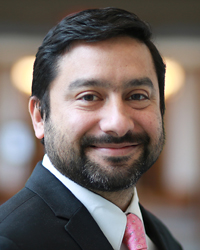 Camilo Sanchez
Camilo Sanchez
Camilo Sanchez has worked as a consultant and legal expert on different human rights issues for academic, intergovernmental and nongovernmental organizations. He is also director of the International Human Rights Clinic. In his 15-year legal career, Sanchez has worked on cases regarding enforced disappearances in Central America, attacks against human rights defenders in Mexico, and policies for reparations programs in post-conflict countries such as Guatemala, Peru and Colombia.
 John Setear
John Setear
John Setear’s scholarship focuses on the relationship between theories of international relations propounded by political scientists and the particular treaties and doctrines of international law created by lawyers. His teaching includes a series of seminars that examines the practical functioning of international law and U.S. constitutional law during a variety of historical periods, such as the Cold War.
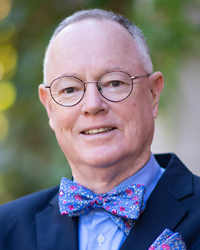 Paul Stephan
Paul Stephan
Paul Stephan has taught international and comparative law at the Law School over four decades. He served as counselor on international law to the Legal Adviser of the State Department in 2006-07, and from 2012 to 2018 was a co-ordinating reporter of the American Law Institute’s Restatement (Fourth) of the Foreign Relations Law of the United States. During 1993-1998 he advised the Department of Treasury on providing technical assistance to the tax policy officials and tax administrators of the former socialist countries, and participated in the drafting of the Tax Codes of Azerbaijan, Kazakhstan, the Russian Federation and Turkmenistan. He has been involved in numerous lawsuits and international arbitrations as an expert witness. He has written on international law, law and development, and international institutions as well as on tax policy and U.S. constitutional law.
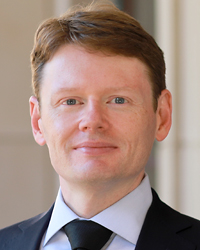 Pierre-Hugues Verdier
Pierre-Hugues Verdier
Pierre-Hugues Verdier teaches and writes on international financial regulation and on broader public international law topics including foreign state immunity, customary international law, and the reception of international law in national legal systems. His research has appeared in both law reviews and peer-reviewed academic journals, and in recent years he has been a visiting professor at Harvard Law School and the University of Chicago. Prior to joining the faculty, he practiced corporate and securities law with Cleary Gottlieb Steen & Hamilton in New York. He is a graduate of McGill University’s joint common law and civil law program, received master’s and doctoral degrees from Harvard Law School, and clerked for Justice Charles Gonthier of the Supreme Court of Canada. He is one of six Canadians to be awarded the Diploma of the Hague Academy of International Law.
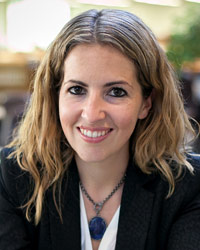 Mila Versteeg
Mila Versteeg
Mila Versteeg specializes in comparative constitutional law, international human rights law and empirical legal studies. Most of her research deals with the origins, evolution and effectiveness of provisions protecting fundamental rights. Her academic publications have appeared in numerous leading law reviews and social science journals; some have been reported on by national news organizations and translated in several foreign languages. In 2017, she was named an Andrew Carnegie Fellow, which provided her with a $200,000 award to expand her research into the world's constitutions to better understand how constitutional rights are enforced in different countries. Versteeg is a graduate of Tilburg University, Harvard Law School and Oxford University.
Other Resident Faculty With International Law Interests
In addition, other faculty members teach courses and supervise papers related to international law, often with a focus on a specific subfield or area:
- Aditya Bamzai
- Michal Barzuza
- Darryl K. Brown
- Michael D. Gilbert
- Andrew Hayashi
- Ruth Mason
- Dotan Oliar
- George Rutherglen
- Steven D. Walt
Visiting/Adjunct/Emeritus Faculty
Paul B. Stephan, a professor at the University of Virginia School of Law and a former adviser to multiple presidents and foreign governments, offers insights about the history and shaky future of the international order in his latest book, “The World Crisis and International Law: The Knowledge Economy and the Battle for the Future,” published by Cambridge University Press.
UVA Law professor Mitu Gulati and Lee Buchheit, formerly of Cleary Gottlieb Steen & Hamilton, discuss how sovereign debt restructuring sparked by the COVID-19 pandemic will play out in 2022 and 2023. Dean Risa Goluboff introduced Gulati and Buchheit.
Core International Law Faculty
Virginia Law’s international law faculty includes some of the nation’s leading experts in their respective fields. They regularly teach international law courses, organize and participate in international law events and conferences, and supervise independent research in their areas of expertise:
 Kevin Cope
Kevin Cope
Kevin Cope’s research applies social science methods to the study of international institutions, migration, and political attitudes toward international law. One of Cope’s major research initiatives involves multilateral treaty-making, in which he applies a theoretical model to negotiating data collected from the archived records of the last few decades’ most significant conventions, with the goal of improving future treaty-making processes. Before coming to the Law School, Cope clerked for three federal judges and practiced government enforcement litigation law in Washington, D.C., with Skadden, Arps, where he handled matters involving treaties, the Foreign Corrupt Practices Act, immigration law and the World Bank.
 Ashley Deeks
Ashley Deeks
Ashley Deeks teaches and writes on international law and national security issues. Before coming to UVA in 2012, she served as the assistant legal adviser for political-military affairs in the U.S. Department of State’s Office of the Legal Adviser, as well as the Embassy legal adviser at the U.S. embassy in Baghdad in 2005, during Iraq’s constitutional negotiations. She was a 2007-08 Council on Foreign Relations international affairs fellow and a visiting fellow in residence at the Center for Strategic and International Studies. Since joining the Law School, she has been frequently quoted in the national media on topics such as legal justifications for war, diplomatic immunity, the Edward Snowden affair, and the use of cyber and drone warfare.
 Kristen Eichensehr
Kristen Eichensehr
Kristen Eichensehr writes and teaches about cybersecurity, foreign relations, international law and national security law. She has written on, among other issues, the attribution of state-sponsored cyberattacks, the important roles that private parties play in cybersecurity, the constitutional allocation of powers between the president and Congress in foreign relations, and the role of foreign sovereign amici in the Supreme Court. She received the 2018 Mike Lewis Prize for National Security Law Scholarship for her article, “Courts, Congress, and the Conduct of Foreign Relations,” published in the University of Chicago Law Review. In 2021 she became director of UVA Law’s National Security Law Center.
 Mitu Gulati
Mitu Gulati
Mitu Gulati’s work focuses on sovereign debt restructuring and contracts, and explores how to help countries in financial distress. Gulati co-hosts the podcast “Clauses and Controversies,” is a contributor to the blog Creditslips.org and serves as regional editor for the journal Capital Markets Law Journal.
 A. E. Dick Howard
A. E. Dick Howard
A. E. Dick Howard teaches courses in comparative constitutionalism. He was the chief architect of the Constitution of Virginia. He has compared notes with drafters of constitutions in various foreign countries, including Poland, Hungary, Czechoslovakia, Romania, Bulgaria, Albania, Brazil, the Philippines, Hong Kong, South Africa and Malawi. Howard has written extensively on Anglo-American constitutional history, especially the legacy of Magna Carta, and on constitutional developments in post-communist Central and Eastern Europe.
 David S. Law
David S. Law
David Law is an internationally recognized expert in the comparative study of public law and courts, and a pioneer in the application of empirical social science methods to the study of legal texts. His scholarship combines qualitative fieldwork on foreign judicial and constitutional systems, quantitative analysis of constitutions and treaties, and regional expertise on Asia. Before joining the Virginia faculty, Law held the Sir Y.K. Pao Chair in Public Law at the University of Hong Kong. Law earned his B.A. in public policy and his M.A. and Ph.D. in political science from Stanford University, his J.D. from Harvard Law School, and his B.C.L. in European and Comparative Law from the University of Oxford. Born and raised in western Canada, he is a native Mandarin speaker.
 Tom Nachbar
Tom Nachbar
Tom Nachbar works extensively in the national security arena, focusing on law of armed conflict and the role of legal institutions in counterinsurgency and stability operations. He is a judge advocate in the U.S. Army Reserve, where he has, among other assignments, edited an Army handbook on the development of legal systems, trained Palestinian security forces in the West Bank and deployed to Iraq. He is a senior fellow at the Center for National Security Law.
 Camilo Sanchez
Camilo Sanchez
Camilo Sanchez has worked as a consultant and legal expert on different human rights issues for academic, intergovernmental and nongovernmental organizations. He is also director of the International Human Rights Clinic. In his 15-year legal career, Sanchez has worked on cases regarding enforced disappearances in Central America, attacks against human rights defenders in Mexico, and policies for reparations programs in post-conflict countries such as Guatemala, Peru and Colombia.
 John Setear
John Setear
John Setear’s scholarship focuses on the relationship between theories of international relations propounded by political scientists and the particular treaties and doctrines of international law created by lawyers. His teaching includes a series of seminars that examines the practical functioning of international law and U.S. constitutional law during a variety of historical periods, such as the Cold War.
 Paul Stephan
Paul Stephan
Paul Stephan has taught international and comparative law at the Law School over four decades. He served as counselor on international law to the Legal Adviser of the State Department in 2006-07, and from 2012 to 2018 was a co-ordinating reporter of the American Law Institute’s Restatement (Fourth) of the Foreign Relations Law of the United States. During 1993-1998 he advised the Department of Treasury on providing technical assistance to the tax policy officials and tax administrators of the former socialist countries, and participated in the drafting of the Tax Codes of Azerbaijan, Kazakhstan, the Russian Federation and Turkmenistan. He has been involved in numerous lawsuits and international arbitrations as an expert witness. He has written on international law, law and development, and international institutions as well as on tax policy and U.S. constitutional law.
 Pierre-Hugues Verdier
Pierre-Hugues Verdier
Pierre-Hugues Verdier teaches and writes on international financial regulation and on broader public international law topics including foreign state immunity, customary international law, and the reception of international law in national legal systems. His research has appeared in both law reviews and peer-reviewed academic journals, and in recent years he has been a visiting professor at Harvard Law School and the University of Chicago. Prior to joining the faculty, he practiced corporate and securities law with Cleary Gottlieb Steen & Hamilton in New York. He is a graduate of McGill University’s joint common law and civil law program, received master’s and doctoral degrees from Harvard Law School, and clerked for Justice Charles Gonthier of the Supreme Court of Canada. He is one of six Canadians to be awarded the Diploma of the Hague Academy of International Law.
 Mila Versteeg
Mila Versteeg
Mila Versteeg specializes in comparative constitutional law, international human rights law and empirical legal studies. Most of her research deals with the origins, evolution and effectiveness of provisions protecting fundamental rights. Her academic publications have appeared in numerous leading law reviews and social science journals; some have been reported on by national news organizations and translated in several foreign languages. In 2017, she was named an Andrew Carnegie Fellow, which provided her with a $200,000 award to expand her research into the world's constitutions to better understand how constitutional rights are enforced in different countries. Versteeg is a graduate of Tilburg University, Harvard Law School and Oxford University.
Other Resident Faculty With International Law Interests
In addition, other faculty members teach courses and supervise papers related to international law, often with a focus on a specific subfield or area:
- Aditya Bamzai
- Michal Barzuza
- Darryl K. Brown
- Michael D. Gilbert
- Andrew Hayashi
- Ruth Mason
- Dotan Oliar
- George Rutherglen
- Steven D. Walt
Visiting/Adjunct/Emeritus Faculty
Paul B. Stephan, a professor at the University of Virginia School of Law and a former adviser to multiple presidents and foreign governments, offers insights about the history and shaky future of the international order in his latest book, “The World Crisis and International Law: The Knowledge Economy and the Battle for the Future,” published by Cambridge University Press.
UVA Law professor Mitu Gulati and Lee Buchheit, formerly of Cleary Gottlieb Steen & Hamilton, discuss how sovereign debt restructuring sparked by the COVID-19 pandemic will play out in 2022 and 2023. Dean Risa Goluboff introduced Gulati and Buchheit.
Curriculum
- Core Course
- Specialized Courses
- Advanced Courses and Seminars
- Clinics, Field Research and Professional Skills
- Sample International Law Course Sequences
- All International Law Courses and Seminars
Students can choose from an extensive selection of courses that cover all major areas of international law, and have the flexibility to construct a curriculum of broad-based instruction in the field or to concentrate on a specialized area of interest such as international trade and investment, international litigation and dispute resolution, international human rights, or national security and the use of force.
Core Course
The core course is International Law. It introduces the fundamental notions of the field, such as how treaties are made and applied, how international law rules are identified and interpreted, the legal status of states, governments and international organizations, the circumstances in which international law is applied in U.S. courts, and the role and functioning of international courts and tribunals.
Because these notions apply across all areas of international law, it is a required or recommended prerequisite for many specialized courses. Students are encouraged to take it in the spring of their first year or the fall of their second year, before moving on to more advanced courses, seminars and clinics.
Specialized Courses
These courses provide surveys of specialized areas of international law, covering the main rules, treaties and organizations that govern them. The aim of these courses is to equip students with the fundamental substantive knowledge in their subfield of international law.
As such, they also serve to bridge the gap between the core International Law course and more advanced practical or research-oriented offerings. For example, the International Human Rights Law course lays the substantive groundwork for students wishing to take the Human Rights Study Project and/or the International Human Rights Law Clinic.
Examples of such courses include: Admiralty, Conflict of Laws, European Union Law, Immigration Law, International Arbitration, International Environmental Law, International Finance, International Human Rights Law, International Investment Arbitration, International Law and the Use of Force, International Taxation, International Trade, Law of Armed Conflict, National Security Law, and Oceans Law and Policy
Advanced Courses and Seminars
These courses provide students with the opportunity to reflect on, and sometimes conduct independent research in, specialized areas of international law. They often take the form of small seminars in which students and faculty tackle the broader policy questions that arise in an area, how they are addressed under existing arrangements, how they relate to broader theoretical ideas or empirical research, and how reform proposals should be developed or evaluated.
This category also includes advanced courses that examine specific aspects of an area of international law, and comparative and foreign law courses that examine the laws of a specific foreign jurisdiction or the laws on a given topic across several foreign jurisdictions.
Examples of such courses include: An American Half-Century, Antitrust in the Global Economy, Building the Rule of Law, Comparative Constitutional Law, Emerging Markets: Principles and Practice, EU Taxation, European Company Law, French Public and Private Law, Globalization and Private Dispute Resolution, International Banking Transactions, Legal and Policy Issues of the Indochina War, Topics in International Tax, Unconventional Warfare, War and Peace: New Thinking about the Causes of War and War Avoidance, and World War I.
Clinics, Field Research and Professional Skills
These clinics and courses offer opportunities for students to develop their practical skills in a specialized area of international law. As such, students interested in these offerings are strongly encouraged to first take the core International Law course and the basic subfield course in the relevant area (e.g., International Human Rights Law, Immigration Law or International Tax).
Examples of such courses include: Human Rights Study Project, Immigration Law Clinic, International Business Negotiation, International Civil Litigation, International Human Rights Law Clinic, International and Foreign Legal Research, and International Tax Practicum.
Sample International Law Course Sequences
The following sample course sequences are meant to assist students interested in each of the areas listed in selecting courses and the order in which to take them.
These sequences are not complete curricula; they leave substantial room for students to select additional courses based on their other interests. In doing so, students should take into account that some advanced international law courses have prerequisites outside the international law field (e.g., Antitrust for Antitrust in the Global Economy; Securities Regulation and/or Banking and Financial Institutions for International Finance; Federal Income Tax for International Tax; etc.)
International Trade, Finance and Investment
Spring 1L or Fall 2L
International Law; Corporations
2L
Antitrust in the Global Economy
International Finance
International Trade (alongside other fundamental business courses: Securities Regulation, Accounting and Corporate Finance, Antitrust, Federal Income Tax, Commercial Sales, etc.)
3L
Emerging Markets: Principles and Practice
International Business Negotiation
International Banking Transactions
International Tax
International Investment Arbitration
International Litigation and Dispute Resolution
Spring 1L or Fall 2L
International Law
2L
Conflict of Laws
International Arbitration
Globalization and Private Dispute Resolution (alongside other fundamental litigation and arbitration courses: Evidence, Federal Courts, Remedies, etc.)
3L
International Investment Arbitration
International Civil Litigation
International Human Rights
Spring 1L or Fall 2L
International Law
2L
International Human Rights Law
Law of Armed Conflict
Building the Rule of Law
Immigration Law (alongside other civil rights, public service and related courses, e.g., Civil Rights Litigation, Employment Discrimination, Racial Justice and Law)
3L
International Human Rights Law Clinic
Human Rights Study Project
Immigration Law Clinic
National Security and Use of Force
Spring 1L or Fall 2L
International Law
2L
National Security Law
Law of Armed Conflict
International Law and the Use of Force
3L
Unconventional Warfare
War and Peace: New Thinking about the Causes of War and War Avoidance
World War I
Terrorism, Human Rights and Rule of Law: Comparative Approach
Legal and Policy Issues of the Indochina War
University of Virginia School of Law professor Mitu Gulati has been elected to the American Academy of Arts and Sciences, an honorary society and research center that dates back to the American Revolution.
Scholars discuss Professor Paul B. Stephan’s new book, “The World Crisis and International Law: The Knowledge Economy and the Battle for the Future,” which offers insights about the history and shaky future of the international order. Panelists include Professor Anne van Aaken of Universität Hamburg, Kathleen Claussen of Georgetown University and Thomas H. Lee of Fordham University. UVA Law professor Jay Butler moderated the event.
Extracurricular Activities
The Law School supports a thriving community of about 70 student-run organizations, including several that contribute to international law opportunities.
Related Student Organizations
Human Rights Study Project
The project's mission is to further the study of law affecting the protection of basic rights in foreign countries. Each year a project team travels abroad to research human rights issues in a specific country and report their findings. Student teams have traveled to Cuba, Sierra Leone, and Syria and Lebanon, China, India, Uganda, Cambodia and Egypt. Participants are selected by the prior year's student team based on applications submitted in the spring. More
John Bassett Moore Society of International Law
The J.B. Moore Society is a driving force in international law activities at the Law School. Each year the society hosts a symposium on topics such as the war on terror or corruption in foreign governments, as well as a lunch lecture series in which international law faculty and foreign graduate students present papers. The society also sponsors the Jessup International Law Moot Court team and pro bono human rights projects. Website
Virginia Journal of International Law
Now in its fifth decade, the Virginia Journal of International Law is the oldest continuously published, student-edited law review in the United States devoted exclusively to the fields of public and private international law. It is the most frequently cited student-edited journal of international and comparative law, and the third-most-frequently cited student-edited specialty journal of any kind. Website
Virginia Law Veterans
Virginia Law Veterans supports student members of the military community and serves as an information resource for anyone conducting research on national security or international law and policy issues. Membership is open to any interested person and does not require any past or present tie to the military. Website
Second-year student Rishabh Sharma, a former math teacher and wrestling coach, enjoys studying international debt law at the University of Virginia School of Law while also working toward a master’s in education policy.
University of Virginia law professor Mitu Gulati looks at the tragic history of Haiti’s 19th-century “odious debt” to France after islanders won their freedom from slavery, and discusses whether Haiti could recoup what it lost.
International Law Fellowship for the International Court of Justice Judicial Fellows Program
The University of Virginia School of Law has successfully placed several candidates in the International Court of Justice’s Judicial Fellows Program. When a candidate is selected, the UVA Law International Law Fellowship provides a stipend of $50,000 to assist with travel, living expenses and health insurance. The program at the court’s seat at the Peace Palace in The Hague, Netherlands, begins in early September 2024 and runs to June/July 2025. Fellows sometimes extend their stay to participate in The Hague Academy of International Law, or to work with the judges through private arrangement.
The fellows program provides a unique opportunity to participate in the work of the ICJ, which is the principal judicial organ of the United Nations. The court decides legal disputes submitted to it by states and provides advisory opinions on legal questions referred to it by the U.N. or its specialized agencies.
In past years, UVA alumni such as McCoy Pitt ’13, Florian Knerr LL.M. ’14, Gulardi Nurbintoro LL.M. '14, Subarkah Syafruddin LL.M. ’16, Karen Janssens LL.M. ’14, Antonios Antonopoulos LL.M. ’11, Caitlin Stapleton ’09 and Annalise Nelson ’07 have joined graduates from some of the top U.S. and European law schools chosen to serve in the ICJ’s Judicial Fellows Program.
Eligibility
The fellowship is open to current UVA Law third-year, LL.M. and S.J.D. students (Class of 2024), as well as UVA Law J.D., LL.M. and S.J.D. graduates of the classes of 2020-23. To be eligible, the ICJ requires candidates to be 31 years of age or younger at the time the program begins.
Applicants must be proficient in one of the ICJ’s official languages (French or English); a very good working knowledge of the other is an advantage. They must have an excellent overall academic record as well as an excellent record in international law, with proven research and writing skills.
Responsibilities
Fellows generally work directly for an individual judge. They can expect to attend the court’s public hearings, to research and write memoranda for the judge on legal questions or factual aspects of pending cases, and to have some other involvement in the work of the court, the particulars of which will depend on the court’s docket and the working methods of the particular judge. For more information about the International Court of Justice, see www.icj-cij.org/en.
Application Process
UVA School of Law Internal Deadline: Monday, Jan. 29, 2024.
Clerks are chosen through a highly competitive process. The court makes the final selection from the nominees of all the schools.
Eligible applicants must electronically submit the application documents in Word or PDF format in the following order to Cindy Derrick, @email.
- Cover letter/statement of interest, including (a) a description of your academic and other experience in public international law; (b) your background and/or experience in international law, and (c) knowledge of additional languages (if any).
- Virginia ICJ Judicial Fellows Program Application for 2024-25, submitted in Word.
- Curriculum vitae.
- Official Law School transcript.
- Current course list, if a student (also identifying professors).
- At least two letters of reference, one of which should be from a member of the UVA School of Law faculty and one addressing your credentials in the field of international law (letters may be sent via email from referees directly to Cindy Derrick, @email.
- Writing sample from each applicant of no more than 15 typewritten pages of work that has been submitted for publication or other work of publishable quality.
- Candidate profile summary table.
It is the applicant’s responsibility to ensure his or her application is complete by the deadline. Because of the ICJ’s submission deadline, we are unable to extend our deadline or wait for incomplete applications. A Law School selection committee will choose the candidates to nominate to the ICJ by Feb. 5. Those applicants will be notified prior to submitting their candidacy. The court’s deadline to receive nominations is Feb. 5, and they are expected to make the final selection decision by April 2024.
Funding
The ICJ does not have funding for the Judicial Fellows Program. One UVA Law graduate will receive a substantial stipend to assist with travel, living expenses and health insurance. The candidate will be responsible for the remainder of his or her expenses beyond the stipend amount. Practical arrangements such as travel, visa, accommodations, and health and other insurance are the responsibility of the candidate.
Miscellaneous
The court accepts no responsibility for medical insurance of participants or costs arising from accident or illness during the program. Nor will the court be liable for compensation claims by third parties in respect of any loss or damage to their property, or death or personal injury, caused by the action or omission of participants during their time in the program.
Participants will be expected to observe all applicable rules, regulations and directions of the court. They will be bound by the obligation towards the court of loyalty, discretion and confidentiality, and will be required to make a declaration to that effect.
Questions
Please direct questions to Professor Camilo Sánchez at @email.
McCoy Pitt, a 2013 alumnus of the University of Virginia School of Law, will clerk at the International Court of Justice in the upcoming year.
Fellowships
Monroe Leigh Fellowship in International Law
The fellowship provides a total of $10,000 for one or more students to pursue a public international law project of their own choosing during the summer following the first or second year, during the fall and/or spring of the third academic year, or for a postgraduate internship. Application Information
Summer Opportunities
In addition to working summers at firms and other employers that deal with aspects of international law, a number of students find public service positions abroad. The student-run Public Interest Law Association offers $3,750 to $6,500 grants to help fund a broad array of summer public interest opportunities, which have recently included internships with ANT Lawyers Vietnam in Ho Chi Minh City, Vietnam; the International Criminal Tribunal for the former Yugoslavia at The Hague in the Netherlands; and the International Press Institute in Vienna, Austria, among others. More on Human Rights Program Fellowships
Alumni
More than 650 Virginia Law graduates currently work overseas in 65 countries and every continent. They include the president and CEO of Citibank Japan, the managing director and general counsel of international wealth management at Credit Suisse, U.S. ambassador to Finland, general counsel at Mubadala Petroleum, and the president of the Motion Picture Association EMEA. Additionally, Law School alumni are partners and associates at major global law firms and teach at many universities around the world.
Graduates have received Fulbright fellowships to study abroad, and have worked for government and NGO employers dealing with international law and human rights at home and overseas, including the United Nations, the Capital Area Immigrants’ Rights Coalition, the Center for Justice and Accountability, Human Rights Watch, the Center for National Security Studies, the U.S. Department of Justice Board of Immigration Appeals, the U.S. Army JAG Corps, Global Rights and the U.S. Agency for International Development, among others.
OUR ALUMS LIVE IN Argentina, Aruba, Australia, Austria, Belgium, Brazil, Canada, Chile, China, Colombia, Costa Rica, Czech Republic, Denmark, Egypt, France, Germany, Ghana, Greece, Guatemala, Hong Kong, Hungary, Iceland, India, Indonesia, Ireland, Israel, Italy, Japan, Jordan, Korea, Mexico, New Zealand, Nicaragua, jNigeria, Norway, Pakistan, Panama, Paraguay, Peru, Phillipine Islands, Poland, Qatar, Romania, Russia, Saudia Arabia, Scotland, Singapore, Slovania, South Africa, South Korea, Spain, Swaziland, Sweden, Switzerland, Taiwan, Thailand, The Netherlands, Turkey, Ukraine, United Arab Emirates, and the United Kingdom.
Veronica Dragalin ’11 was appointed Moldova’s chief prosecutor for corruption last August. The University of Virginia School of Law alum, who was born there 37 years ago, left her work as an assistant U.S. attorney to take on the role.
Retired Gen. Wesley K. Clark came to the Law School for a nonpartisan discussion encouraging young adults to enter the modern political arena. He provided an overview of recent American political history and sketched out some of the challenges facing future American leaders. The speech was sponsored by the Student Legal Forum.

Oxford-Virginia Legal Dialogs
Tax Meets Non-Tax
Fall 2021 and Spring 2022
In an environment of increasing academic specialization, Oxford-Virginia Legal Dialogs seeks to build bridges across academic disciplines by introducing a new kind of workshop. For each session, a tax scholar will select a non-tax, but law-related, work that is prominent in its own field and explain how the work is relevant to the study of taxation. The author of the work will then respond before we open the session to questions and discussion by workshop attendees. More
Constitutions, Economic Alternatives and Human Rights: Towards More Equal Covenants
May 18, 2021
5 p.m. EDT
Register
Co-organized by the UVA Law Center for International & Comparative Law, the Center for Economic and Social Rights, the Global Initiative for ESCR and Ciudadanía Inteligente.
The event will address some of the economic alternatives included in the region’s constitutions, and their relevance for the human rights agendas. Particularly, participants will discuss the principles’ potential to inform constitutional reforms, such as the current Chilean constitutional process. The speakers are:
- Magdalena Sepúlveda Carmona, Executive Director at GI-ESCR
- Manuel J. Cepeda, Former Magistrate of the Constitutional Court of Colombia
- Javier Couso, Professor and researcher on Constitutional Law at Universidad Diego Portales de Chile
- Olivia Minatta, Fiscal Justice in Latin America Project, Center for Economic and Social Rights
- Nelson Camilo Sánchez, Director, Center for International and Comparative Law, UVA Law
